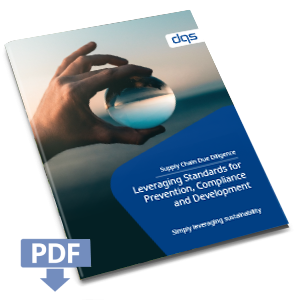Choose your language

Around the globe, legislative changes and increasing regulatory scrutiny are forcing companies to assume responsibility for human rights and environmental impacts along their supply chains. It started small and slow, with the California Transparency Act in 2010, picked up speed with the Modern Slavery Act (UK, 2015; Australia, 2018) and the Duty of Vigilance Law (France, 2017), and really kicked in in the early 2020s, with (additional) regulation in Germany, Norway, New Zealand, Switzerland, Mexico, Canada, the US, and many more.
In sum, these legislative initiatives put pressure on companies to install a proactive due diligence system to ensure compliance with human rights standards and environmental standards throughout the supply chain, in order to avoid penalties, reputational damage, and having products taken off the market.
In this whitepaper, we will:
- Focus on the role of standards and audits in supply chain due diligence
- Explore how to integrate supplier audits into the due diligence process
- Discuss the limitations of current audit practice and how to deal with them
In addition, our experts will provide six specific tips on how to maximize the effectiveness of a supplier audit program, with a focus on ensuring compliance, reducing risk and driving improvement along the supply chain.


Author
Dr. Thijs Willaert
Dr. Thijs Willaert is Global Director Sustainability Services. In this role, he is responsible for the entire ESG service portfolio of DQS. His areas of interest include sustainable procurement, human rights due diligence and ESG audits.